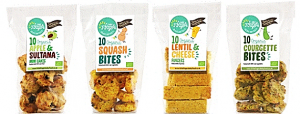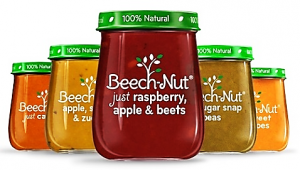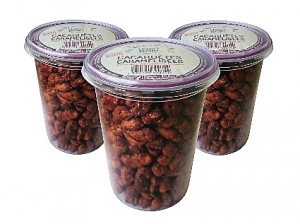Transparent packaging is gaining consumer confidence

Transparent packages are increasingly flooding the shelves, as they are preferred largely by both consumers and the food industry.
 In particular, due to the increased concern of potential buyers for the safety of their food, transparent packages enable them to examine with naked eye the content and judge the quality and freshness of the products, contributing decisively to the final purchasing decision. Typically, 54% of US consumers consider this type of packaging especially important in the final purchasing decision, while 30% of them judge the freshness of the product mainly visually, giving less emphasis to the expiration date.
In particular, due to the increased concern of potential buyers for the safety of their food, transparent packages enable them to examine with naked eye the content and judge the quality and freshness of the products, contributing decisively to the final purchasing decision. Typically, 54% of US consumers consider this type of packaging especially important in the final purchasing decision, while 30% of them judge the freshness of the product mainly visually, giving less emphasis to the expiration date.
 Furthermore, transparent packaging is of increasing interest for food brands, as it renders
Furthermore, transparent packaging is of increasing interest for food brands, as it renders
unnecessary the use of many graphic elements and messages, giving the product itself the opportunity to be displayed while contributing at the same time to cost reduction.
 A typical example is the transparent plastic pouch that incorporates a multi-colored label that has the brand logo printed on it. This packaging was used by a British baby food producer for the organic range of its products in order to communicate in an efficient and economical way their quality and enhance the brand’s image.
A typical example is the transparent plastic pouch that incorporates a multi-colored label that has the brand logo printed on it. This packaging was used by a British baby food producer for the organic range of its products in order to communicate in an efficient and economical way their quality and enhance the brand’s image.
 Particularly interesting is the glass jar that incorporates a plastic lid and bears on its surface a transparent label (pressure sensitive label). It can be recycled and was used by an American manufacturer of natural baby food in order to attract Millennial mothers (those born between 1980-2000) and enhance its brand identity, by offering an ecological and 100% natural product that can be kept fresh for a long time.
Particularly interesting is the glass jar that incorporates a plastic lid and bears on its surface a transparent label (pressure sensitive label). It can be recycled and was used by an American manufacturer of natural baby food in order to attract Millennial mothers (those born between 1980-2000) and enhance its brand identity, by offering an ecological and 100% natural product that can be kept fresh for a long time.
 An additional example is the lightweight, transparent, plastic jar consisting of a plastic cap which incorporates printed graphic elements and the company’s logo. The package was used by a French manufacturer of liquid caramel for its caramelized peanuts in order to offer its customers a convenient and safe snacking solution and differentiate itself from the rest of the products on the shelf. Therefore, as food safety is a key priority for consumers worldwide -a trend which is expected to prevail in the future-, more and more companies in the food industry are turning to transparent packaging in order to gain consumer confidence.
An additional example is the lightweight, transparent, plastic jar consisting of a plastic cap which incorporates printed graphic elements and the company’s logo. The package was used by a French manufacturer of liquid caramel for its caramelized peanuts in order to offer its customers a convenient and safe snacking solution and differentiate itself from the rest of the products on the shelf. Therefore, as food safety is a key priority for consumers worldwide -a trend which is expected to prevail in the future-, more and more companies in the food industry are turning to transparent packaging in order to gain consumer confidence.
Sources: Waqas Qureshi (2016), Tony Corbin (2016), www.bakeryandsnacks.com, www.packagingnews.com.au
